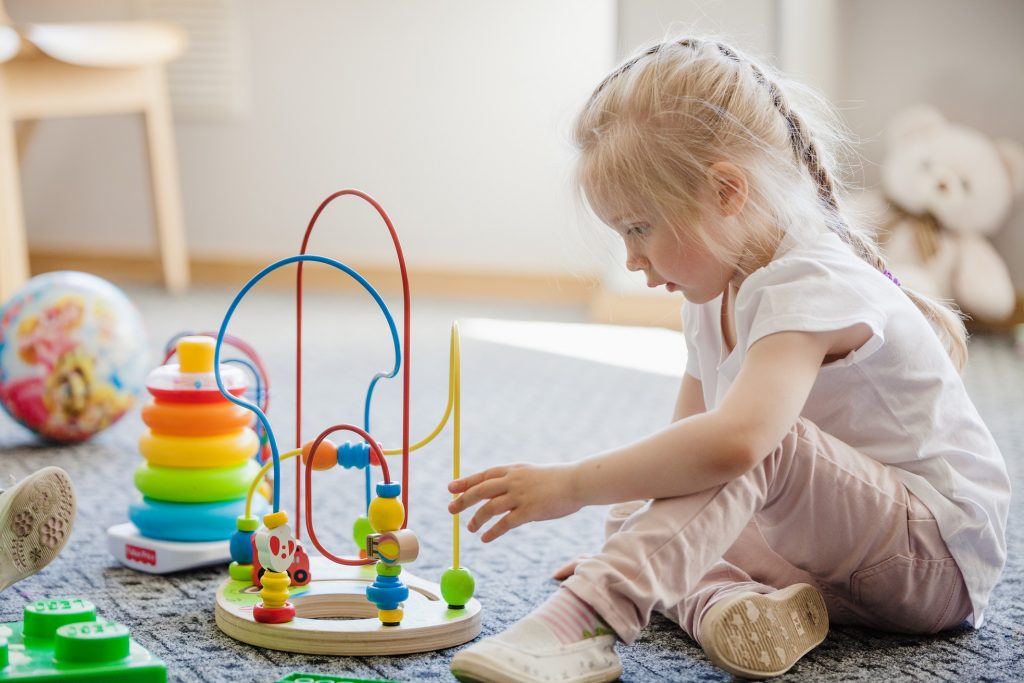It is incredibly vital to catch autism early especially during infancy, as it makes a huge differences. As you know your child better than anyone else, parents play the most important role to spot the earliest warning signs of autism and observe your child. Also, the key is to educate and prepare yourself as much as you can about the disorder. In this article, you will understand autism in a deeper level. Do click here to learn more about what you can do to treat autism and as well as the preventive measures for expectant mothers.
What is Autism?
Autism is a spectrum disorder, meaning that there is a wide degree of variation in the way it affects people. Mainly detected in infancy and early childhood, every child who has autism will have very unique abilities, symptoms and challenges. Two children may have the same diagnosis but they may look very different when it comes to their behaviors and abilities. Generally, autism disorder causes delays, at least to some degree, in the following areas:
- Thinking and behaving flexibly
- Communicating verbally and non-verbally
- Relating to others and the surroundings around them
Causes of Autism
While many believed that autism is caused mainly by genetic factors, experts now also believe that environmental factors contributes in the development of autism, or both. For example, babies may be born with genetic vulnerability to autism, but triggered by external environment while in the mother’s womb or even after birth. Some of the prenatal factors that contributes to autism are:
- Nutritional deficiencies during pregnancy, especially during the 1st trimester
- Taking anti-depressants during pregnancy
- Maternal infections during pregnancy
- Complications during or shortly after birth, including neonatal anemia
- Exposure to chemical pollutants
- Exposure to certain virus
- Age of the mother and father

Signs and Symptoms
Autism and intellectual disability (or mental retardation) share a lot of similarities, in which makes diagnosis difficulty in early childhood. Symptoms are much more prominent and obvious when children are older, which also mean it will be harder to treat. If your child has the below symptoms, schedule a doctor’s appointment right away!
Toddlers & Babies
Symptoms often surface between 12 and 18 months. It makes all the difference if autism is detected before 18 months of age. Intensive treatment can take full advantage of the little one’s brain, rewire the brain and reverse the symptoms. It is not easy to diagnose autism at such an early stage as the earliest signs involve the absence of normal behaviors instead of the presence of abnormal one. The symptoms are even misinterpreted as a sign of a “shy and quiet” baby, hence if it important to know what to look out for in catching warning signs early:
- Don’t make eye contact with you when being fed or played with
- Don’t smile, even when smiled at or played with
- Don’t respond to his/her name or to familiar voices
- Don’t respond or initiate to cuddling
- Don’t reach out to be picked up
- Don’t follow objects or gestures visually when you point things out
- Don’t try to get your attention
Developmental Red Flags
Do take note of the following delays, as they warrant an immediate evaluation and doctor visit:
- By 6 months – No smiles or warm, joyful expressions
- By 12 months – No babbling or ‘baby talk’, gestures such as pointing, waving or reaching out
- By 16 months – No spoken words
- By 24 months – No two-word phrases that don’t involve imitating or repeating
OLDER CHILDREN
The red flags for autism become even more diverse as your children get older. Warning signs and symptoms typically revolve around difficulties in social skills, speech and language, non-verbal communication and inflexible behavior. Experts have found that these behaviors soothe them, rather than stimulate them. Below are a list of these signs & symptoms:
Social Behavior
- Prefers not to be touched or cuddled
- Has trouble understanding feelings and talking about them
- Doesn’t seem to hear when people talk to them
- Appears disinterested or unaware of what’s going on around them
- Doesn’t know how to connect or play with friends
- Doesn’t engage in group games
- Doesn’t play “pretend games”, imitate others or use toys in creative ways
- Prefers to be alone and be in their own world, detached from others
Emotional
- Difficulty regulating emotions
- Especially sensitive to loud noises. They will get upset and respond by covering their ears, make repetitive noises to drown out the noise or run away from the noise
- May yell, cry or laugh hysterically for no apparent reason
- When upset or throwing a tantrum, they can be aggressive – harming himself/herself, hitting others or damaging things
- Unaware of real dangers like fire, heights, moving cars but yet, they are terrified of harmless objects such as toys
Speech and Language
- Delay in learning how to speak (After 2 years old) or doesn’t talk at all
- Repeats the same words or phrases over and over again, often without any intention to communicate
- Has difficulty communicating needs or desires
- Speaks in an unusual tone of voice, or with a weird rhythm or pitch
- Responds to questions by repeating it and not answering it
- Doesn’t understand simple questions or directions
- Don’t get humor, jokes and sarcasm
Non-verbal Communication
- Unusual postures, eccentric ways of moving or clumsiness
- Reacts unusually to sights, smells, touch and sound
- Unresponsive to people, even it they are trying to attract their attention
- Avoids eye contact
- Uses facial expressions that don’t match what they’re saying
- Doesn’t understand other people’s facial expression, gestures and tone of voice
Inflexibility
- Weird attachments to toys or strange objects such as rubber bands, matches, or utensil
- Obsessively arrange things and toys in certain order
- Follow rigid routine
- Unable to adapt to routine or schedule changes, hence throwing a tantrum
- Spends long period of time watching moving objects
- Stones or focus on a specific part of an objects for a long time
- Repeating or reciting similar phrases of words and noises that is of their interest
- Repeats certain movements or actions over and over again such as:
– Rocking back and forth
– Twirling
– Hand flapping
– Head-banging
– Finger flicking
– Scratching
– Tapping ears
– Spinning objects
If your child ticked most of the boxes from the above signs & symptoms, the first thing you need to do is to keep calm and don’t overreact. Autism can be treated and handled well with the right measures and treatments. Do read our next article “My Child Has Autism! What Can I Do?” to find out more!








